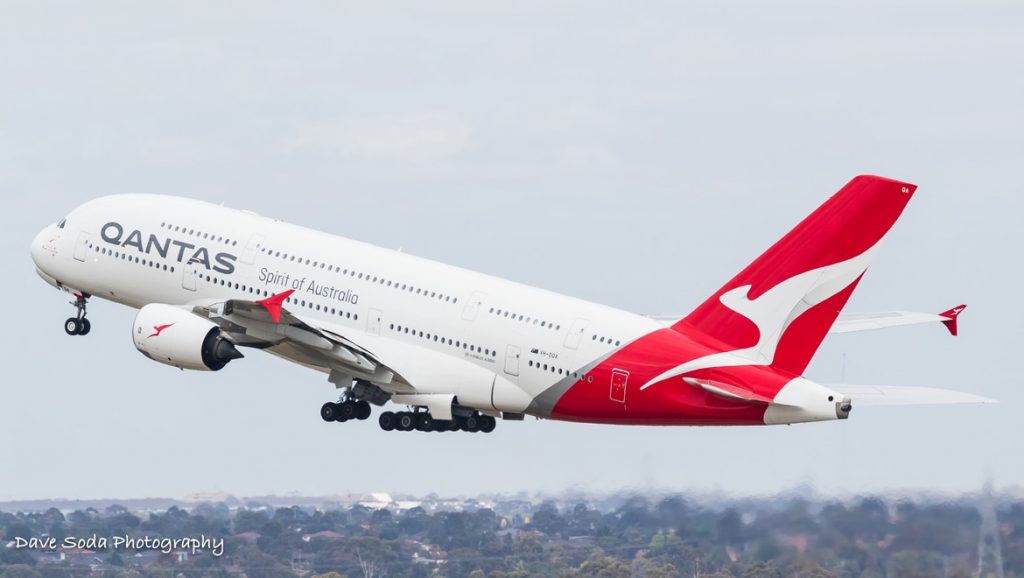
In a trading update on Thursday morning, Qantas revealed that it was preparing to see an annual loss of more than $2 billion in the 2021 financial year, following its half-year loss of $1.03 billion, reported in February.
Despite current improving domestic conditions, Qantas said that the snap three-day lockdown in Perth in April alone cost the company $15 million in revenue, while a similar lockdown in Brisbane in March cost $29 million, due to insecure borders.
Sydney’s extended lockdown in December, sparked by a COVID outbreak in the Northern Beaches, cost Qantas over $400 million in revenue, as states moved to shut borders between the NSW capital and the rest of the country.
That said, assuming the country sees no other snap border closures, Qantas is optimistic it will return an underlying positive result in its earning before interest, taxes, depreciation and amortisation (EBITDA) of $400-450 million for the full-year FY21.
However, when including the significant costs of redundancy payouts, aircraft write downs, and non-cash depreciation charges, Qantas is set to see a statutory loss of over $2 billion before tax.
Qantas’ optimism in returning a positive result before EBIT come June is largely off the back of its more profitable businesses, including budget offshore Jetstar, which turned an underlying profit in April off the back of strong leisure demand over Easter and school holidays.
Further, Qantas is also banking on ongoing strong performances in its freight and loyalty divisions to boost revenue and increase profitability moving forwards.
As such, the group is intending to reach statutory free cash flow positive by the second half of FY21.
The airline is also confident in increasing consumer confidence in air travel, and reported that its corporate travel capacity has now hit 75 per cent of its pre-pandemic levels, while leisure demand also continues to improve.
As it stands, the Qantas group is on track to reach 95 per cent of its pre-COVID domestic capacity by mid-2021, and is still anticipating for Jetstar to achieve 120 per cent of its pre-COVID capacity by later this year.
To meet this anticipated demand, the airline group has reinstated all its domestic aircraft across Qantas and Jetstar back into service, with Jetstar soon to reactivate up to five Boeing 787-8s for domestic use, as well as six A320s on loan from Jetstar Japan.
Meanwhile, regional subsidiary QantasLink has activated eight Embraer E190 aircraft under a previously announced deal with Alliance Airlines.
“We have a long way still to go in this recovery, but it does feel like we’re slowly starting to turn the corner,” said chief executive Alan Joyce.
Joyce reiterated Qantas’ decision to push back its restart of international routes to December 2021, in light of the Australian government’s strong stance on the matter, and criticised the current pace of Australia’s vaccine rollout.
“No one wants to lose the tremendous success we’ve had at managing COVID but rolling out the vaccine totally changes the equation. The risk then flips to Australia being left behind when countries like the US and UK are getting back to normal,” Joyce said.
“Australia has to put the same intensity into the vaccine rollout as we’ve put on lockdowns and restrictions, because only then will we have the confidence to open up.”
At the same time, Qantas also announced that it will introduce a two-year wage freeze on all new enterprise agreements across the Qantas Group, as it seeks to reduce its annual costs by $1 billion by FY23.
Thee flag carrier said that its next round of enterprise agreements will include the two-year wage freeze, and stipulate a 2 per cent annual increase thereafter, down from 3 per cent before the COVID-19 pandemic.
Other attempts to cut costs include the offer of voluntary redundancy for international cabin crew, following the news that Qantas has pushed back its intentions to restart international services until at least December.
According to Qantas, the current voluntary redundancy offer “will be run as an expression of interest program”, and the airline expects to see “several hundred applications”.
Qantas said the number of applications it accepts will be “balanced against retaining key capability for the longer term”.
As it stands, around 6,000 of Qantas’ 22,000-strong workforce is still on stand-down, including the majority of its international crew.















